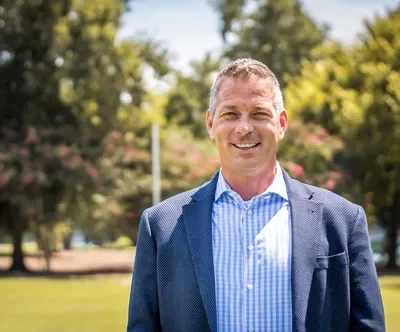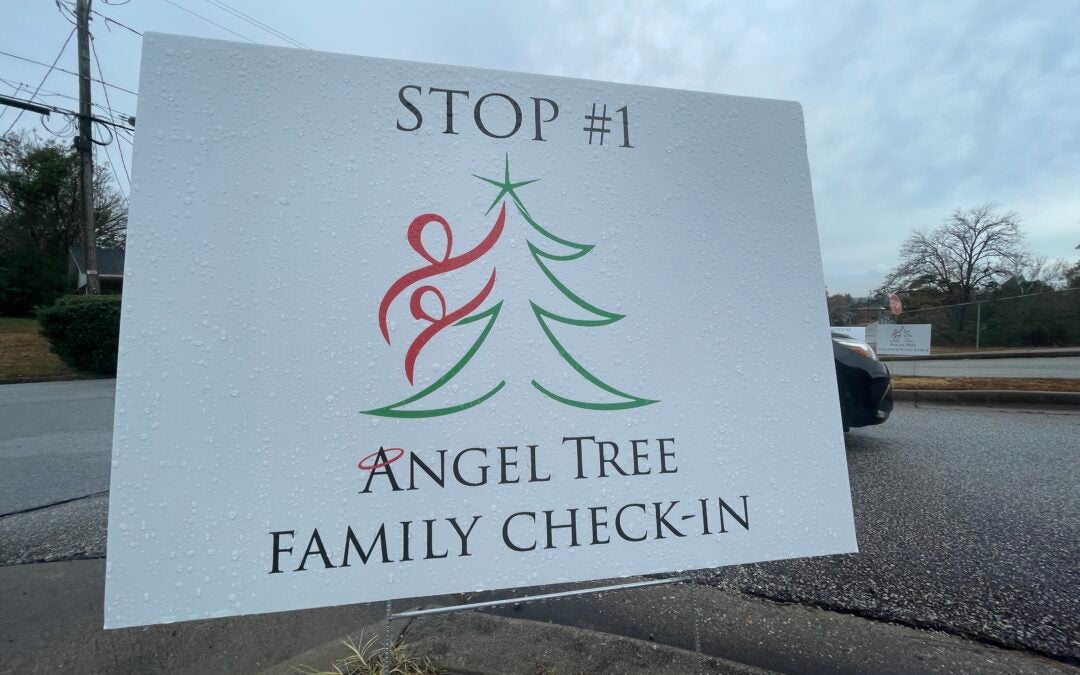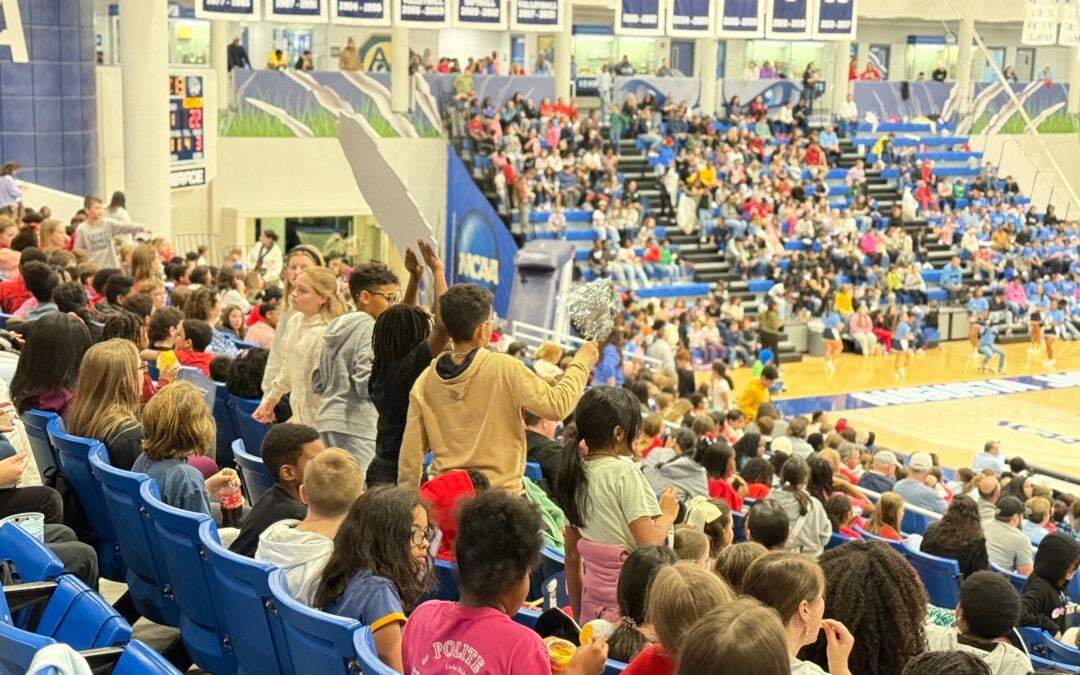Sponsored by the W.G. Raoul Foundation, Augusta University’s College of Allied Health Services is hosting an annual, week-long Asthma Day Camp to teach children 6 to 13 years old about their allergies and asthma triggers.
Described by professionals as a chronic lung disease that makes it difficult to move air in and out of one’s lungs, according to statistics collected in 2019 by the Centers for Disease Control and Prevention, about 1 in every 12 children suffer from asthma. In 2020, the Asthma and Allergy Foundation of America reported that almost all of those children have suffered from at least one asthma attack in the past year.
Held at a Girl Scout Camp in Columbia County, respiratory therapists, AU students, nurses and Allied Health professors volunteer every year to fight against these statistics and educate children for free about the importance of not underestimating asthma and its symptoms.

“We’re here to teach them about what happens to the lungs when they have an asthma attack, how to prevent an attack by knowing what their triggers are, what their symptoms are when they have an asthma attack, what medications to take, and how to monitor it with a device called a Peak Flow meter, which measures how much air they can breathe out,” said Camp Co-organizer and Program Director for AU’s Health Services Program Kitty Hernlen.
Hernlen said children with asthma should be able to participate and do anything a child without the condition can do, but it all depends on effective monitoring, prevention and treatment. Some are incharge of their medication and treatment as young as 8 years old, according to Hernlen, and this is why education plays a key role to avoid more serious concerns.
“They’re the ones that take their medicines every morning, and they’re the ones that know how to take their reliever meds; the more they know, the less afraid they’ll be,” she said. “Because a lot of young people are afraid they’ll die of asthma, and while that does happen we try to do everything we can to prevent it by giving them tools, so they can be more confident and feel more secure that it won’t happen.”

For those who are just starting out as camp counselors, Hernlen said interacting and teaching children about their asthma serves as great on-field experience for Allied Health students, because it allows them to apply their skills to an out of clinic, face-to-face encounter.
“It shows them what can happen before a patient gets to the hospital. They see them in the ER, in a controlled environment, and what happens beforehand,” she said. “It’s public health at its ground roots.”
Experienced camp counselors and now seasoned respiratory therapists, Michael Brantley and Adriana Goldner, said they both thoroughly enjoyed spending time with the campers and feeling as though they are making a difference in their lives.
“You always see the kids coming back. They learn more and every time you see them the next year you can tell that they’ve grown and matured. They understand more,” said Brantley.

Brantley also said exposure to other kids with the same condition teaches children that they are not alone in their health struggles, something which they might not always get when they are in school with the rest of their peers.
“Everybody here has been through that, so here they don’t feel different, or bad about it. They don’t feel bad asking for their inhaler,” he said. “So it’s a place they can just get away and be themselves.”
Along with making connections and new friends, Goldner added that educating kids was also a form of empowerment against asthma.
“Asthma attacks can be pretty traumatic, so if they know how to deal with it then it won’t be so scary anymore,” she said. “Camp teaches them to look for the triggers [of asthma] so those attacks don’t even happen, and the worst doesn’t come very often.”
Camp volunteer and nurse navigator at AU’s Allergy Clinic, Karen Dross, said she often sees families avoid treating asthma by limiting time outdoors and exercising, and this only prevents their lungs from reaching their full potential.
“We have parents come trying to get notes for their kids to get them out of participating in P.E. and other things in school … but the physicians that I work with encourage asthmatic kids to be active so that they’re healthy,” she said. “There is nothing worse than combining say childhood obesity with asthma, it makes it even worse. [AU physicians] don’t discourage any sort of physical activity, and they want them involved in things, because it’s better for them overall. It’s better for their lungs.”
Even worse than limiting their exposure to physical activity are the ones who partake in sports and neglect their inhaler, Dross said teenagers and middle schoolers are very likely to downplay and ignore their asthma, and this long term abuse on their lungs causes problems later down the road, or even death in extreme cases.
“Kids don’t want to be different. They don’t want to be sick and have to take medicine. They just ignore it … and when parents come into the clinic and are talking about how to treat asthma, kids often just don’t pay attention. But with the way things are now, both parents working, there’s not always an adult around,” she said. “Something we try to get across to them is ‘if you want to play football in high school, then you’ve got to take care of your asthma so that you’ll be faster and play better.’ They just get so used to their asthma being out of control, that they don’t even realize they’re not breathing probably.”
Amelia Stanley, a six-year-old camper, said she enjoyed attending camp with her brother, because they both got to learn about asthma and meet new friends who understood her.
“I get to do fun stuff and hang out with my friends,” she said. “I like meeting other kids here because they’re like me.”
Stanley said her favorite activities at camp were the educational water games and the arts and crafts. She is looking forward to coming to camp every year, if possible.
“It’s important that all ages they understand the risks; if they’re having a flare up and they’re responsible for taking their own medicine, they need to get help,” said Dross. “Because things can go south very quickly for an asthmatic child, especially here in this climate with all the different allergens that we have, and teaching them is what we’re doing here.”











